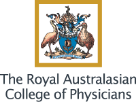What is Multiple Sclerosis?
Multiple sclerosis is a neurological disorder where the body's immune system mistakenly attacks the protective covering (myelin) of nerve fibres in the brain and spinal cord. This process, called demyelination, disrupts the transmission of nerve signals, leading to a wide range of physical and cognitive symptoms.
Types of Multiple Sclerosis:
- Relapsing-Remitting MS (RRMS): The most common form, characterised by periods of relapses (exacerbations) followed by partial or complete remission of symptoms.
- Primary-Progressive MS (PPMS): A less common form where symptoms steadily worsen without distinct relapses or remissions.
- Secondary-Progressive MS (SPMS): This type begins as RRMS and later transitions to a progressive course, with a gradual increase in disability.
- Progressive-Relapsing MS (PRMS): A rare form where symptoms continuously worsen with superimposed relapses.
Symptoms:
The symptoms of MS can vary widely depending on the affected nerve fibres. Common symptoms include:
- Fatigue
- Muscle weakness
- Balance problems and difficulty walking
- Numbness or tingling
- Vision problems
- Cognitive issues
- Bowel and bladder dysfunction
- Pain and muscle spasms/spasticity
Diagnosis:
Diagnosing MS requires a combination of medical history review, physical examination, and various tests, such as:
- Magnetic Resonance Imaging (MRI) to detect areas of demyelination in the brain and spinal cord.
- Lumbar puncture (spinal tap) to analyse cerebrospinal fluid for specific markers of MS.
Treatment:
While there is currently no cure for MS, various treatment options aim to manage symptoms, slow disease progression, and improve quality of life. Treatment may include:
- Disease-Modifying Therapies (DMTs): Medications designed to reduce relapses and slow disease progression.
- Symptomatic Therapies: Medications and therapies to manage specific symptoms like fatigue, muscle spasms, and pain.
- Physical and Occupational Therapy: Exercises and techniques to maintain mobility, strength, and daily living skills.
- Speech Therapy: For patients with speech or swallowing difficulties.
The Role of Rehabilitation in MS Management:
Rehabilitation is a crucial component of MS management, aimed at maximising function, mobility, and quality of life. The main goals of rehabilitation in MS include:
- Managing Symptoms: Rehabilitation helps address specific symptoms such as muscle weakness, spasticity, fatigue, balance issues, and cognitive challenges.
- Improving Mobility: Physiotherapy and exercise programs are tailored to maintain or improve mobility, strength, and flexibility.
- Enhancing Daily Living Skills: Occupational therapy focuses on adapting activities of daily living and developing strategies to maintain independence.
- Addressing Communication Difficulties: Speech therapy can assist with speech and swallowing difficulties that may occur in MS.
- Emotional Support: Rehabilitation provides a supportive environment to address emotional challenges that may arise due to the impact of MS.
Rehabilitation Management:
Rehabilitation programs are designed based on individual needs and may involve the following components:
- Physiotherapy: Targeted exercises and techniques to enhance strength, balance, and mobility.
- Occupational Therapy: Strategies to improve daily living skills, conserve energy, and adapt to limitations.
- Speech Therapy: Techniques to address speech and swallowing difficulties.
- Fatigue Management: Strategies to cope with MS-related fatigue and conserve energy.
- Assistive Devices: Evaluation and recommendation of assistive devices to aid mobility and daily activities.
Living with MS:
Coping with MS may require lifestyle adjustments. Here are some tips to support your well-being:
- Follow your healthcare provider's treatment plan and attend regular check-ups.
- Engage in regular exercise, tailored to your abilities.
- Eat a balanced diet to support overall health.
- Pace yourself and listen to your body to manage fatigue.
- Seek emotional support from family, friends, or support groups.
Our team at GC Rehab is here to provide you with comprehensive care and rehabilitation support tailored to your needs. Please feel free to reach out if you have any questions or concerns.







